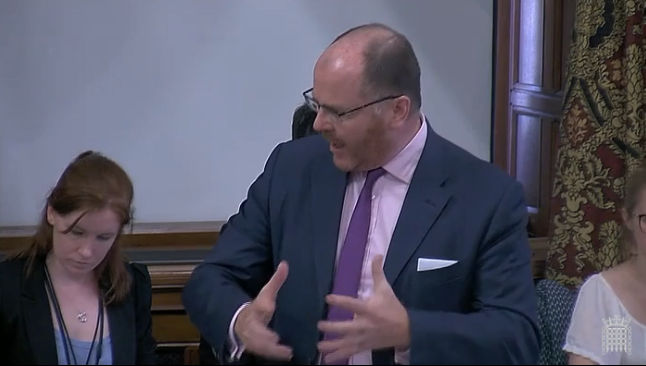Speaking in a debate on reforming the 5 Year Land Supply Rule, George Freeman says the National Planning Policy Framework and 5 Year Land Supply Rule are resulting in the loss of local control of planning with developers banking permissions they know the councils will approve and using the 5 Year Land Supply Rule to force development in the wrong places.

George Freeman (Mid Norfolk) (Con)
I led a debate on this issue earlier this year, which my hon. Friend supported. Does he agree that although we must get the detail right, there is also a question of principle? Through the Localism Act 2011, we set out to be the party that, when in government, gave local communities the chance to shape their future. We are now in danger of looking like we are in favour of speculators, profiteers and out-of-town developers, who dump housing estates that we legislate for, with no responsibility being taken locally. That is not what our party should be about.
James Cartlidge
That is an excellent point. The key word, which we will hear a lot in the coming days, is “control.” We call it speculative development because the community loses control. Let us be honest: if an area has a five-year land supply, there will still be controversial planning applications, but those will be determined by the local authority. People will be unhappy about homes being built in—this is a terrible phrase—their backyard, but the point is that the local community will have a say; it will have control.
George Freeman
The hon. Gentleman is making a powerful point. Does he agree that one injustice in the current system is that those councils—parish councils, in my case—that lead and put together a neighbourhood plan normally propose more housing than the district council had done, but they end up being punished for doing so, not rewarded? Three villages in my constituency did so and have ended up with a Gladman-led development forced through against their wishes. That destroys rather than enhances public trust in planning.
Dr Drew
We actually beat Gladman in my constituency, so there is at least one aspect where we are slightly different, but the reality is exactly that. It is most difficult to persuade parish councils that they can do more when they have seen their neighbouring parishes turned over big time.
George Freeman
My right hon. Friend is putting a powerful point to the Minister about the undermining of trust in the system. Does he agree that something else is going on? Where, in my case, the district council agreed to put housing in the right place, down by the main road—the A11 in this case—the developers are banking those permissions for later, because they know that they will get them, and using the five-year land supply to force the wrong development in the wrong places. Not only is trust in the system undermined, but we are getting the wrong development in the wrong places, which is deeply undermining people’s ability to say yes to new housing. It is compounding the problem.
Nick Herbert
My hon. Friend puts it incredibly well, and I strongly agree. That is why this is so cynical. We have to understand that developers are not just taking advantage of a loophole but gaming the system. As a consequence, I believe we are building fewer houses than we could if developers had to do what policy should require and deliver. I know that my right hon. Friend the Member for West Dorset (Sir Oliver Letwin) has been charged with looking at this, and that is important, but there are changes we could make in the meantime, as my hon. Friend the Member for South Suffolk has suggested.
